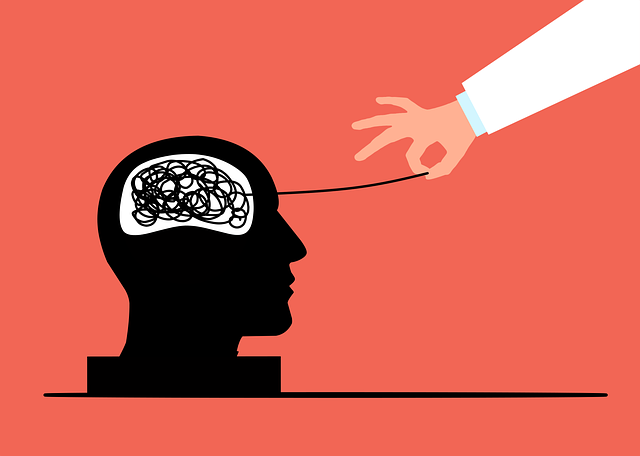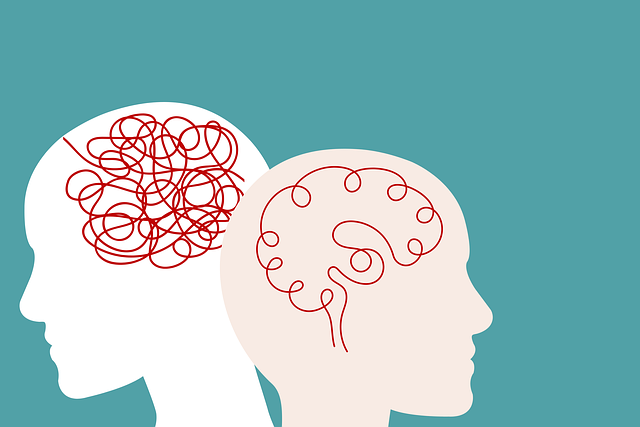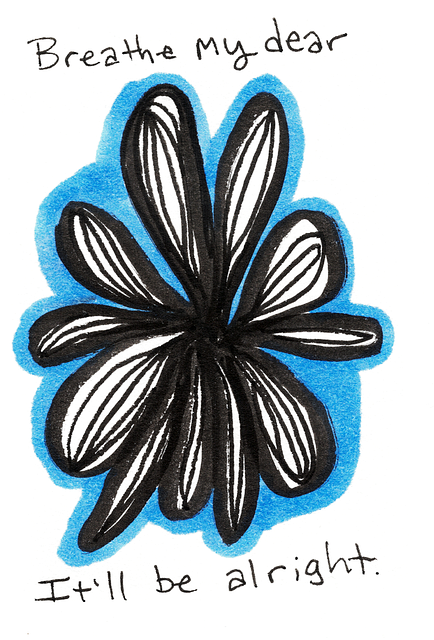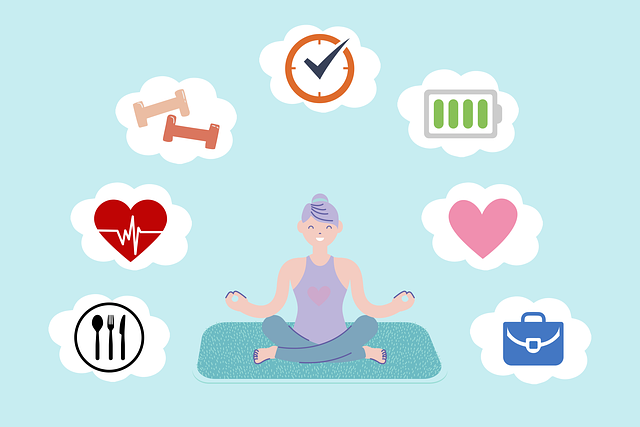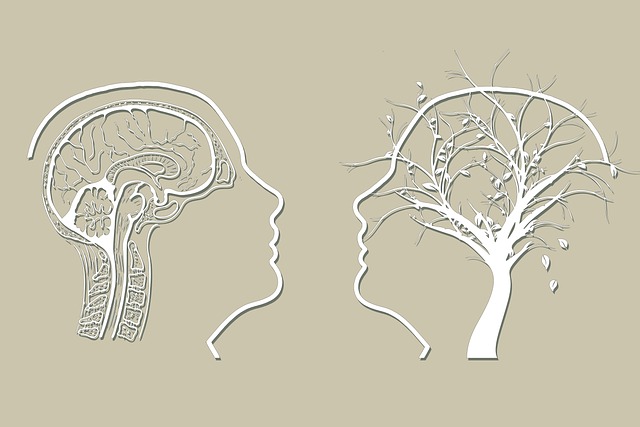Stress management is crucial for adult well-being, with therapy, especially mindfulness-based approaches, offering effective solutions. These methods teach present-moment awareness and non-judgmental thought observation to combat stress. Integrating emotional intelligence enhances their benefits, fostering self-awareness and understanding of emotions in both personal and professional settings. Interactive workshops combining evidence-based practices like deep breathing, mindfulness, and therapy for adults empower individuals with tailored self-care strategies, reducing stress levels and improving overall mental health. Organizations facilitating these workshops should focus on continuous improvement through measurable outcomes and emotional intelligence integration to ensure lasting positive impacts.
Stress management workshops are gaining popularity as effective tools for adults seeking therapy. In today’s fast-paced world, understanding the impact of stress on mental health is crucial. This article explores evidence-based strategies to combat stress and anxiety, with a focus on mindfulness techniques. We’ll delve into designing engaging workshops, facilitating interactive sessions, and measuring their success. By combining scientific insights with practical activities, these workshops offer a transformative experience, empowering adults to navigate life’s challenges with resilience and enhanced well-being.
- Understanding Stress and its Impact on Adults
- The Role of Mindfulness in Stress Management
- Designing Effective Stress Management Workshops
- Facilitating Interactive Sessions for Deeper Engagement
- Measuring Success and Continuous Improvement Strategies
Understanding Stress and its Impact on Adults

Stress is a ubiquitous part of adult life, with many facing chronic pressure from work, family commitments, and personal challenges. While acute stress can be manageable, prolonged or excessive stress can have significant detrimental effects on both physical and mental health. It’s important to understand that stress doesn’t just affect the mind; it manifests in various bodily symptoms such as increased heart rate, muscle tension, and sleep disturbances. These physiological responses can lead to long-term issues like anxiety disorders, depression, and even cardiovascular diseases if left unaddressed.
Therapy for adults, particularly mindfulness-based approaches, offers valuable tools for managing stress. Mindfulness practices encourage individuals to be present in the moment, non-judgmentally observing their thoughts and emotions. This proactive mental state can help reduce the intensity of stressful reactions and foster better coping mechanisms. Moreover, addressing stress through therapy can contribute to stigma reduction efforts around mental illness and self-esteem improvement, allowing adults to lead healthier, more balanced lives.
The Role of Mindfulness in Stress Management

Mindfulness has emerged as a powerful tool within stress management workshops, offering therapy for adults seeking to navigate life’s challenges with greater equanimity. This ancient practice encourages individuals to focus on the present moment, observing their thoughts and feelings without judgment. By cultivating mindfulness, participants learn to recognize triggers for stress and anxiety, allowing them to employ effective coping strategies. For instance, mindful breathing exercises can help regulate mood management by calming the nervous system, thereby reducing the impact of stressful situations.
Integrating emotional intelligence into these workshops further enhances their effectiveness. Trained facilitators guide attendees through activities that foster self-awareness and empathy, enabling better understanding of their emotions and those of others. This is particularly beneficial in managing stress in professional settings, where a comprehensive risk assessment for mental health professionals can identify potential burnout triggers. Through mindfulness and emotional intelligence practices, participants gain valuable skills to maintain resilience and overall well-being, even amidst demanding circumstances.
Designing Effective Stress Management Workshops

When designing effective stress management workshops, it’s crucial to integrate evidence-based practices that cater to various aspects of mental health awareness. Start by incorporating therapy for adults, focusing on techniques like mindfulness and deep breathing exercises. These methods not only help in anxiety relief but also serve as powerful tools for depression prevention.
The curriculum should be interactive, fostering a safe space where participants can openly discuss their experiences. Incorporate activities that challenge conventional thinking and encourage participants to explore sustainable coping strategies. By combining theoretical knowledge with practical applications, the workshops can effectively empower individuals to better manage stress in their daily lives, enhancing overall well-being.
Facilitating Interactive Sessions for Deeper Engagement

Facilitating Interactive Sessions is a powerful way to engage participants and create a dynamic learning environment in stress management workshops. These sessions go beyond traditional lectures by encouraging active participation, fostering open communication, and promoting emotional healing processes. By incorporating activities, discussions, and role-plays, workshop leaders can help attendees develop practical tools for resilience building.
Interactive approaches allow individuals to explore Self-Care Practices tailored to their unique needs. Through group exercises and reflective practices, participants learn to recognize and manage stress triggers effectively. This hands-on approach not only enhances learning but also strengthens the sense of community within the workshop setting, enabling attendees to support one another in their journey towards better mental well-being.
Measuring Success and Continuous Improvement Strategies

Measuring success and implementing continuous improvement strategies are integral to any Stress Management Workshops Organization’s (SMWO) effectiveness. Utilizing quantifiable metrics like participant satisfaction scores, retention rates, and post-workshop stress level reductions provides tangible evidence of the program’s impact. Qualitative feedback through surveys or focus groups offers deeper insights into attendees’ experiences and specific areas for enhancement.
Embracing Emotional Intelligence (EI) principles within these processes is crucial. Workshops should encourage self-reflection and awareness, enabling participants to recognize their emotional triggers and develop strategies for managing stress. Mental Wellness Coaching Programs Development that incorporates EI training can foster a culture of continuous learning and improvement within the SMWO, ultimately enhancing its ability to support individuals in achieving lasting mental wellness through practices like mindfulness therapy for adults.
Stress management workshops play a pivotal role in empowering adults with effective tools to navigate life’s challenges. By combining insights from understanding stress with practices like mindfulness, these sessions offer tangible benefits that extend beyond the workshop hall. Through interactive facilitation, participants gain deeper self-awareness and learn valuable strategies for long-term well-being. Continuous improvement is key, and measuring success allows organizers to refine their approach, ensuring workshops remain impactful and relevant in helping adults cultivate resilience and enhance their therapy journey.
